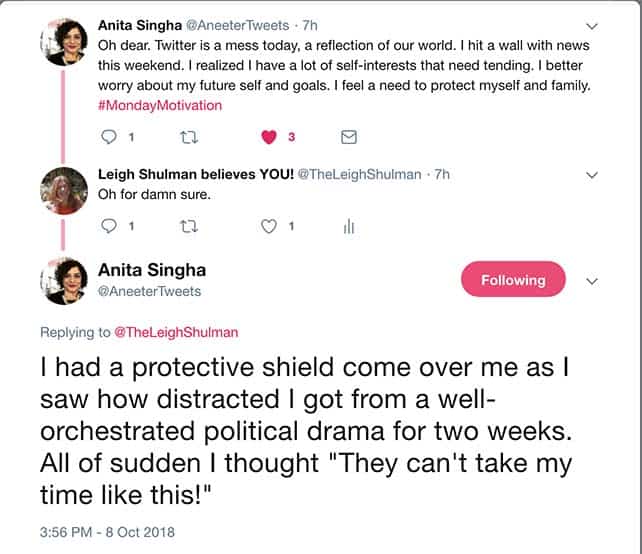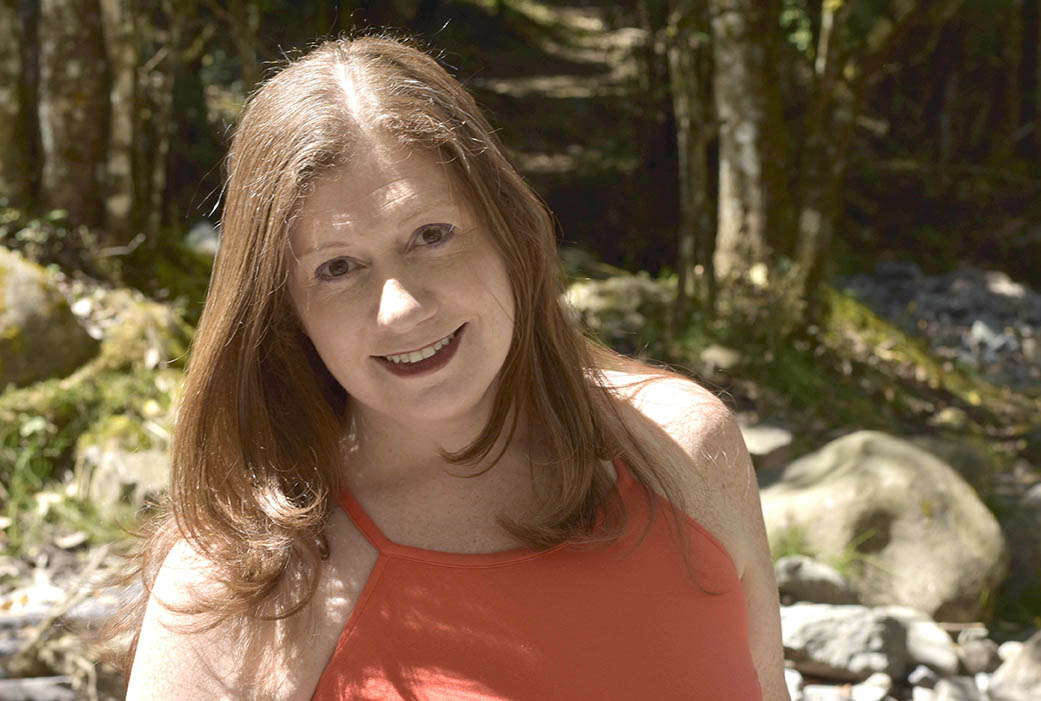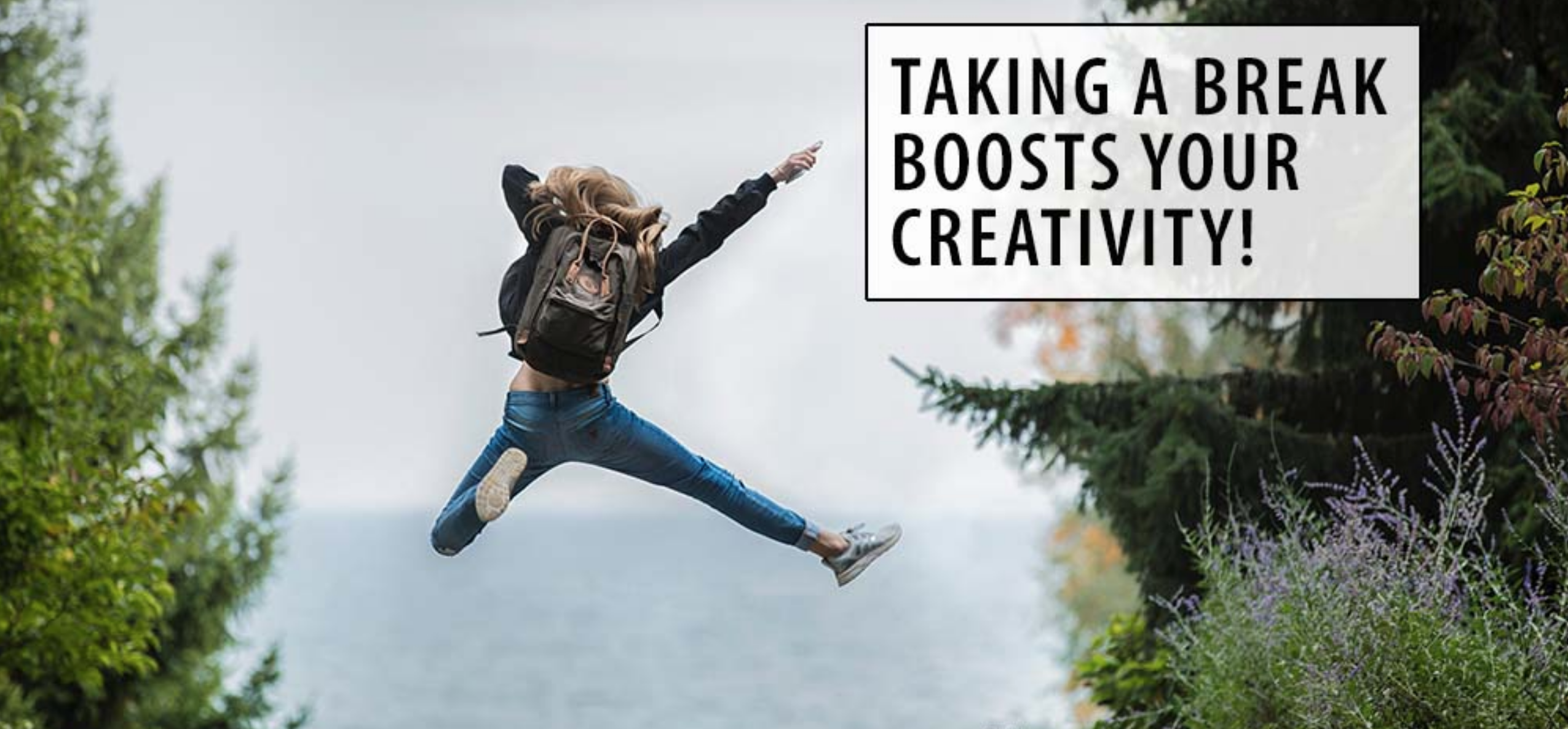The term free time baffles me as much as the phrase “disposable income.” Who the hell has extra time and money that they think of it as extra? I know I don’t.
Still, we all need breaks. We need free time every day to breathe and step back from whatever it is we’re doing so our bodies and minds can mellow out. We’re better people when we have that space to do things other than our to-do lists.
Unfortunately, our days are full and busy and we have too much going on, so it can seem impossible to really take free time for ourselves. Yet free time is imperative because, without it, we cannot truly flourish.
We’re more creative when we make time for free time.
When you engage your brain in activities that don’t have a specific purpose or goal — sometimes called non-commissioned work — you learn to set your own schedule and pace. You develop a sense of autonomy and self-reliance, and you are more likely to take risks and innovate.
We need unstructured time to let our minds wander and daydream. When we imagine new worlds and ideas, we’re opening ourselves to new possibilities. Our brains build images and scenes that put space around the things we wish to solve in our daily lives and open ourselves to new ideas, thoughts and ways of doing. When we move away from the rules, we are more able to create something new and exciting.
Procrastination is your friend (sometimes).
Do you procrastinate? I do, and I don’t know many people who don’t.
Not all procrastination is considered equal. Sometimes it builds creativity and insight. Other times, it keeps you from moving forward. It depends what you’re doing when you and how you procrastinate.
In his book, The Originals: How Non-Conformists Move the World, Adam Grant talks about how starting a project then waiting before you finish can build creative excitement and lead to more interesting projects. When we take time to let information marinate in our brains, we allow ourselves to see more possibility in the work we’re doing.
When we take time to think, even if not actively, we make more connections and deepen and widen our ideas. But if you procrastinate to the point where you don’t actually start or you never finish, then you’re not taking free time. You’re avoiding.
If you’re playing video games, getting into fights online, scrolling through Facebook or otherwise engaged in activities that go through the motions but aren’t really doing anything, your procrastination is neither productive nor is it free time.
You don’t rest and you don’t get anything done. Your brain is busy, but you’re not actually doing what you need to do. This kind of procrastination doesn’t replenish you, because your brain is busy but you’re not doing something that relaxes you, makes connections or does anything useful for your writing or your life.
Free time does.
Boredom is better than always busy.
Two scientific studies found a connection between boredom and creativity. When you let your mind wander, you allow yourself to explore ideas and make connections between those ideas in a way that allows you to create with more complexity and depth.
I remember when my daughter Lila was less than a year old. I’d been home with her daily and hadn’t slept properly in months. Finally, I had a babysitter for half a day once a week so I could go to a cafe and work. I packed my bag with a computer, notebook, pens and pencils and even the pages of my work-in-progress to read and edit. I had grandiose ideas of how much I’d get done. Oh, I was going to WRITE!!!
My first day at the cafe? I ordered a tea and then stared at the wall for two hours. My second day at the cafe the same. I did nothing at all. I may not have known at the time, but I was doing something. I was engaging in time to make myself more creative.
How you define free time depends on you.
You know those articles in business magazines that tell you how successful people spend their free time? They always include ways to spend your free time that allow you to disengage from all the things you have to do.
Spending time with family. Reading. Taking classes. Get involved with hobbies or volunteering. Doing something that moves your body.
These things expand our minds and allow the creative distance we need from our work. We are literally happier during free time.
I recently took a poetry class with Brigid Yuknavitch. Poetry isn’t a part of my daily life. I don’t usually write it and rarely read it. This class was time out of time. I wrote. I thought about language differently. I told my story in ways I never had. What I also learned from this process? Somehow, I have a series of strict rules for poetry in my head. I don’t know why or how they got there, but they’ve been standing in the way of my ability to enjoy poetry. Once I saw these rules in my head, I understood how to break them. I could be free of them.
I also went for a walk in the mountains behind our house. No phone or internet signal out there. No e-mail. No calls. No messages. Just me and the pups running around, climbing higher.
Drawing. Painting. Reading. Hanging out with my kids. Tending the garden in our yard. I even wrote a poem about picking tomatoes in our backyard last summer. It’s my own private refuge from the rest of the world.
What activities allow your brain to relax and be free?
Online time is not free time.
If it wasn’t already clear: When you go online during your time away from work, you are not taking a real break. Instead, you’re continually pinging your brain with signals. More information. More people. More things to worry about. More things to buy. More more MOAR!

This tweet with my friend, author and mom to an amazing daughter Anita Singha, says everything!
What’s your own personal signal?
We need to block out the noise in the world around us and find the signal. It all begins with what’s most important in your life.
In my book,The Writer’s Roadmap, I ask you to distill what you want in your life — work and personal — into one sentence. I even walk you through how to construct that sentence. How to remove everything you don’t want from your life. How to know what you do want.
If you’re anything like me and my clients, you’ll have many more categories and projects than just your three top goals. You’ll probably also want to tackle everything at the same time.
I warn you now. Don’t do it.
Triumvirates and trilogies abound in religion and literature. Brahma, Vishnu, Shiva, the Holy Trinity, three bears, three Fates, and three Muses. Three is a symbol of permanence in the Old Testament. And let’s not forget the writing rule of three, which states things are funnier, more satisfying and more effective in groups of, yes, once again, three. We see three everywhere.
Going beyond symbolism, the human brain can grasp only so many ideas at once. After that, we become overwhelmed and stop retaining information. According to a study from the University of Oregon, our brains don’t hold memories and events beyond four at a time.
When you set these boundaries on your writing and life, you remove the obligations that drain your energy, sap your creativity and suck the joy out of your life. When you focus on what you want, it’s amazing how you suddenly find more free time.


